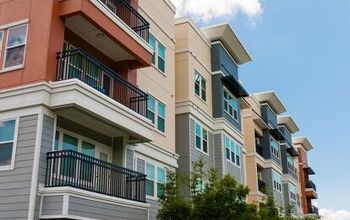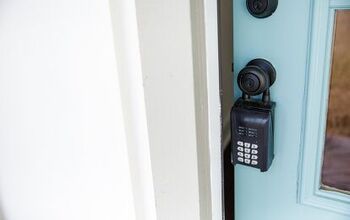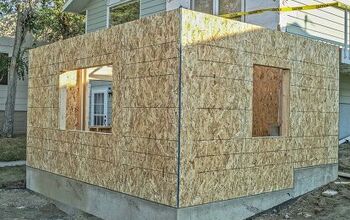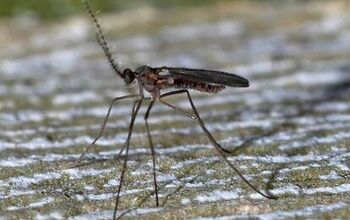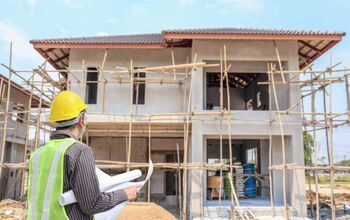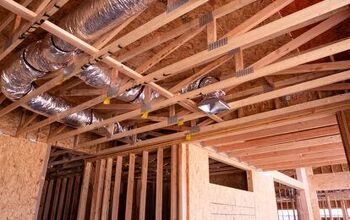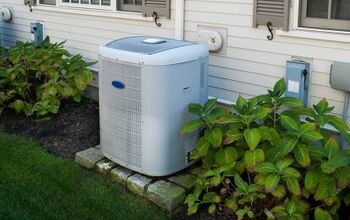Can My Landlord Come Into My Yard Without Notice? (Find Out Now!)

Your home is your sanctuary. If you have a yard then its natural beauty may be the pinnacle of your sanctuary. When you see strangers on your lawn this may cause alarm and confusion. If your landlord comes into your yard without notice, you may feel similar feelings. Worse, you might even feel like you are being spied on by your landlord. You may also wonder if your landlord has the right to just show up on your property without your permission.
Your landlord should provide you with notice before entering your yard. One major exception to this rule is an emergency situation. If your landlord enters your yard without permission, make sure that your yard is included as part of the lease property. Research the trespassing laws in your state to see if your landlord is in violation of these laws.
Do You Need to Hire Movers?
Get free, zero-commitment quotes from pro contractors near you.

How Much Notice Should A Landlord Give?
First you should understand how much notice a landlord needs to give you before coming on your property. This will help you determine if the landlord can come into your yard without notice.
All states have their own trespassing laws, so be sure to check your specific state. Most states require at least 24 hours notice, while others require 48 hours notice. This notice should be sent in a written form, and you should have time to receive and consent to this notice.
Reasons Your Landlord Can Enter Your Property
Next, you should learn the reasons a landlord may want access to your rental property. Remember that a landlord can not enter for any reason.
- If You Ask The Landlord To Come In. When you invite your landlord in to point out a problem, or for any other reason, they can come at the scheduled time.
- To Show The Property to Prospective Tenants or Mortgage Companies. If your lease is expiring your landlord has the right to show the apartment to prospective tenants in your last 30 days. Your landlord can also show the property to mortgage companies if he or she is trying to sell the property. Still, the landlord must give you the proper notice.
- To Make Necessary Repairs Or Improvements To The Unit. Over time, your unit will need repairs. Whether it is painting, flooring or plumbing work, your landlord has the right to schedule times to perform necessary maintenance on your dwelling.
- To Inspect The Premises For Damage. Following a natural event, or if your landlord expects damage (signs of termites, rodents or other warning signs), your landlord can request a time to inspect the home.
- To Inspect The Property for Suspected Violations. If your landlord has witnessed or received information that you are in violation of your lease he or she has the right to investigate. The landlord must give you proper legal notice before entering the property.
- It’s An Emergency. One example of when a landlord does not need to give notice to enter the property is an emergency.
Is There An Emergency
If there is an emergency or an implied emergency your landlord may seek to enter your yard and even your home. It is standard law that normally a landlord needs to offer at least 24 hours notice before entering your property. If there is a clear emergency, however, the landlord is allowed to gain access to your yard and home.
A broken pipe in the yard is one example of why your landlord would need access to your yard. If a storm-damaged power lines, or knocked over a tree, your landlord has the right to access the lawn to assess what emergency efforts should be made. Routine house maintenance is not an emergency, and this should be expressed to you with at least 24 hours notice.
Is The Yard In The Lease
When you notice your landlord in your yard unannounced, you might feel uncomfortable or even angry. Before you confront the landlord or make a rash decision you should review your lease. Some leases are specific to a dwelling while others encompass the entire property.
If your lease does stipulate the yard being part of the unit (this is often made clear when it comes to upkeep of the yard, and its rules) then the landlord should not come onto your yard without notice. When there is only verbiage about the home itself, with no mention of the yard, then you are in a gray area. Should this makes you uncomfortable, seek clarification from your landlord in regards to your lawn and whose domain it is.
Tip: Study on the specific laws in your state to see how much notice a landlord must give before entering your property.
Is The Yard Shared
If your yard is shared with other tenants, or the landlord, then your landlord may have the right to be in your yard without notice. If your unit has a shared yard then there is a chance that your landlord is working on a repair that involves your neighbor’s dwelling.
Before you assume the landlord is trespassing, you may want to first find out the purpose of the visit. The Landlord may have taken the proper steps in communication with your neighbor, and you are simply seeing the landlord because the yard is shared.
Tip: If surprise visits make you uncomfortable, you can always communicate this in writing to your landlord in hopes that they further communicate with you even when an issue does not directly affect you.
My Landlord Is In My Yard, Now What?
Check Your Lease. You may be tempted to march onto the lawn and confront the landlord directly. Before you create that kind of tension you should check your lease. Be sure the lawn is included as part of the property in the lease.
Confirm Trespassing Laws In Your State. Most states have separate trespassing laws than you may find in your lease. Research trespassing laws in your state, especially as they apply to landlords’ and tenants’ rights.
Document The Occurrence. If you are confident your landlord is unlawfully on your property you should document this occurrence. Photos or videos are one example of documentation. An e-mail or certified mail correspondence detailing the occurrence is also an option. Be sure to notate the exact date, time and location of the occurrence. If you end up pursuing the detail legally the more detail you have the better.
Proceed Accordingly. Once you confirm the landlord is trespassing and you document the occurrence it is time for you to weigh your options. You can communicate directly with the landlord if your goal is to establish clear boundaries between the two of you. If you want to take legal action, you can also take the issue to court.
Related Questions
Can My Landlord Come into My Home Without My Permission?
Generally speaking, your landlord should not enter your home without your permission. One major exception is an emergency. Your home may have a major malfunction when you are not there, like a burst pipe, smoke or carbon monoxide leak. If this is the case, your landlord has the right to enter or send emergency authorities in your unit to fix the issue.Your landlord also has the right to enter your dwelling for several reasons, like repairs, if he or she gives you written notice. As a rule, your landlord should give you at least 24 hours notice before asking to enter the home.
Can My Landlord Make Me Mow The Lawn?
If you rent a property with a yard, you may wonder who is responsible for its upkeep. The answer can almost always be found in the rental agreement.If your lease says the tenant is responsible for the upkeep of the yard, then you are responsible for maintaining the yard. This includes mowing the lawn. If your landlord has any specifics about how the yard should be maintained, that should be written into the lease. Also, before signing the lease be sure the landlord has a lawnmower and other necessary equipment so you do not need to purchase these items out of pocket.
Can I Garden In My Yard If I Am A Renter?
A tenant can not make any alterations on the landscaping of the property they rent. This also includes adding a garden. Sometimes dragon pots, or using an unused area of dirt are acceptable areas for gardening. Before you purchase seeds and a shovel, however, be sure to communicate with your landlord. You must receive approval from your landlord before adding any sort of garden in the yard. If your landlord agrees, be sure to get your landlord’s approval in writing.
Do You Need to Hire Movers?
Get free, zero-commitment quotes from pro contractors near you.

Summing Up The Rules
When you see your landlord in your yard without receiving notice you should investigate further. First, make sure the area you see your landlord on is included in your lease agreement. If there is no emergency and your yard is included in the lease then your landlord may be in violation of your state’s laws.
You can proceed with the issue however you choose, but remember your tenant and landlord relationship is a crucial one for the duration of your rental agreement. You can talk to the landlord about the situation or you can even take the legal route if you deem it necessary.
Related Guide

Tom Gaffey is an expert writer who currently resides in Washington D.C. Tom has a passion for real estate and home improvement writing, as well as travel and lifestyle writing. He lived the last twelve years in Hawaii where he worked closely with luxury resorts and event planners, mastering his knowledge of aesthetics and luxury products. This is where he found his passion for home improvement and a keen interest in DIY projects. Currently, Tom resides in Washington D.C, and also working on his debut fiction novel.
More by Tom Gaffey










